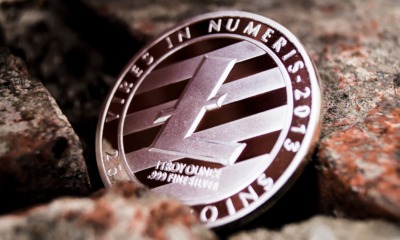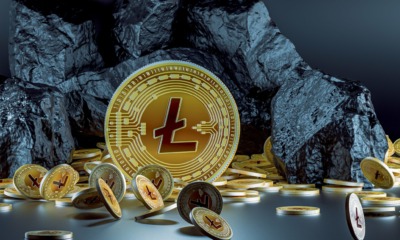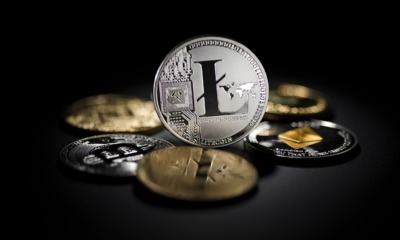Currency Market
Litecoin (LTC) gets chosen as a means of exchange

We all know, Litecoin is one of the most significant cryptocurrencies in the market today. It’s a digital asset that is poised to take over the banking system by storm by creating a better and faster means of payment. This cryptocurrency has been piped to become the number one means of exchange for the world’s financial institutions, as it is fast and cheap; with Litecoin, you can pay for goods at a fast rate with little charges.
Furthermore, it is necessary to know that Litecoin (LTC) is often regarded as the silver coin to Bitcoin. It has also been considered to be very similar or a clone to Bitcoin. Even though Litecoin is similar to Bitcoin, it is much faster and efficient.
The digital asset has been chosen by banks and other financial institutions as a means of exchange, due to its ‘Lightning Network’ as it is off-chain scaling. It is also necessary to keep in mind that there may be other crypto-coins that may serve as an alternative, but Litecoin is considerably faster and cheaper.
Litecoin has also gotten the backing of the UN as they were present at the recent Litecoin summit which also hosted important dignitaries such as Bill Barhydt, ABRA founder and CEO, Eric Brown, Aliant Payments CEO, Franklyn Richards, Director of Litecoin Foundation, Elizabeth Stark, Co-Founder and CEO of Lightning Labs, Diego Guittiérrez Zaldívar, Adam Draper, Elaine Ou, and Eric Brown.
The Recent Happenings on Litecoin Price
Litecoin is aiming to get cheaper regarding its transactions. LTC is regarded as the 7th most valuable crypto in the crypto-space; the digital asset also declared in a Medium Post that it would “lower network fees by more than half.”
Subsequently, Litecoin’s developers stated that the critical step was stirred by “last year’s run-up in the price of LTC when the tx fees regularly reached up to and over $0.10 on average per transaction and peaking at just over $1.”
Litecoin’s decision to lower the fees will foster its mass adoption. LTC developers said,
“We’re not even close to block limits and the block size on disk is pretty small (20GB) relative to other coins”
We do know that market activities usually determine the charges on cryptocurrencies, but developers have the capability to set these charges to a minimum amount – which is now at 0.001 LTC/ kB.
Earlier on, Litecoin’s developers failed to reduce LTC transaction charges during the last LTC bull run, but the Foundation has stated that its transaction charges will stay lower when the next bull-run comes up and not the other way round.
Litecoin’s decision to reduce fees is one of its latest actions to stay relevant amidst the big competition it faces from other digital coins such as Ripple’s XRP. Even on this fierce competition, Litecoin still has an edge due to the renowned recognition and the listings on notable exchanges. Nonetheless, its Lightning Network is making it more appealing to most financial institutions today.
Lastly, LTC is trading at $52.35 and in the red at the time of writing. The crypto has a market capitalization of $3,082,579,314.
For real-time trade alerts and a daily breakdown of the crypto markets, sign up for Elite membership!
Disclaimer: This article should not be taken as, and is not intended to provide, investment advice. Global Coin Report and/or its affiliates, employees, writers, and subcontractors are cryptocurrency investors and from time to time may or may not have holdings in some of the coins or tokens they cover. Please conduct your own thorough research before investing in any cryptocurrency and read our full disclaimer.
Image courtesy of MabelAmber/Pixabay
Currency Market
Smart MFG Tech Announces its First Liquidity Mining Rewards Program on LINKSWAP
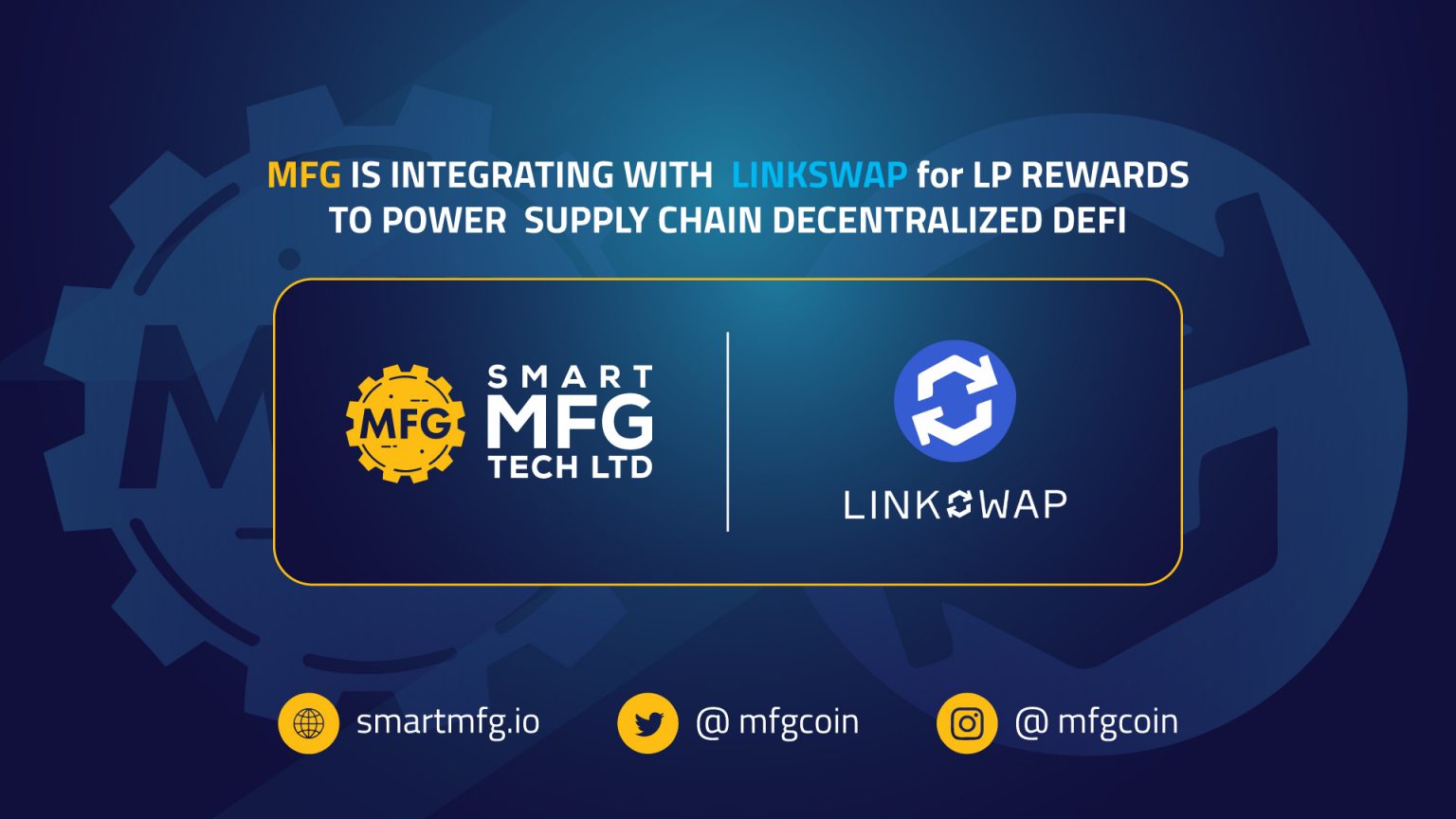
Manufacturing Industry 4.0 company Smart MFG Tech has announced that it is launching its MFG Liquidity Mining Rewards on LINKSWAP today. LINKSWAP is a decentralized, community-governed Decentralized Exchange (DEX) and an AMM platform, which was created by YF Link (YFL). The team at YF Link says it aims to address “the pain points of second-generation AMMs” by offering such features as Reduced Impermanent Loss, RugLock, SlipLock that are not offered by other platforms.
Smart MFG Tech has said that the first integration of the MFG liquidity mining rewards will use the LINKSWAP LP (Liquidity Provider) Rewards service. It will allow LPs to deposit their LP token(s) (UNI-V2) to the participating rewards pool (ETH|MFG) and earn MFG rewards seamlessly. Smart MFG said it will continue to work with the YF Link team to provide support for other pairs and expand services.
LINKSWAP’s Rewards is a liquidity mining service that enables LPs to earn rewards for providing liquidity in a participating pool. YF Link has implemented a custom frontend solution for Smart MFG LP rewards pool on LINKSWAP. This will allow LPs to add liquidity to Smart MFG’s existing ETH|MFG pool on UniSwap v2 and deposit their LP token(s) (UNI-V2) to their LINKSWAP rewards pool (ETH|MFG).
Smart MFG explained how the rewards can be earned:
“LPs get a share of the transaction fees on Uniswap v2. This is calculated by how much liquidity is provided relative to the percentage…
Currency Market
Building Your Nest Egg Brick By Brick: Are Micro-Investments Here to Stay?

No matter what our goals are, sometimes just getting started can be the most difficult part of building our savings up. When it comes to investing, many of us are wary of parting with our money to generate more financial security in the future. But what if you can build significant savings without even noticing?
That’s the aim of the micro-investing apps that have come to dominate online stores across Android and iOS. Today, more fintech startups are working on delivering refined solutions that encourage minuscule investments at a more frequent rate.
Micro-Investing apps will look to make saving more accessible to young people – many of whom in the UK have little-to-no money tucked away for a rainy day.
However, the prevalence of money-saving technology and the disruptive chaos of the COVID-19 pandemic appears to have prompted a widespread increase in households saving more of their disposable income:
With micro-investing platforms playing a role in bringing UK household savings back up to five-year highs, is it fair to say that little-by-little investing is here to stay? Let’s take a look at how micro-investment platforms could revolutionise how we manage our finances:
What is Micro-Investing
Micro-investing, or sparse change investing, is a relatively new development in fintech. It effectively enables users to put away small amounts of money towards their long, or short, term goals. The idea…
Currency Market
Decentralized Insurance Platform Bridge Mutual to Launch BMI Token on Polkastarter
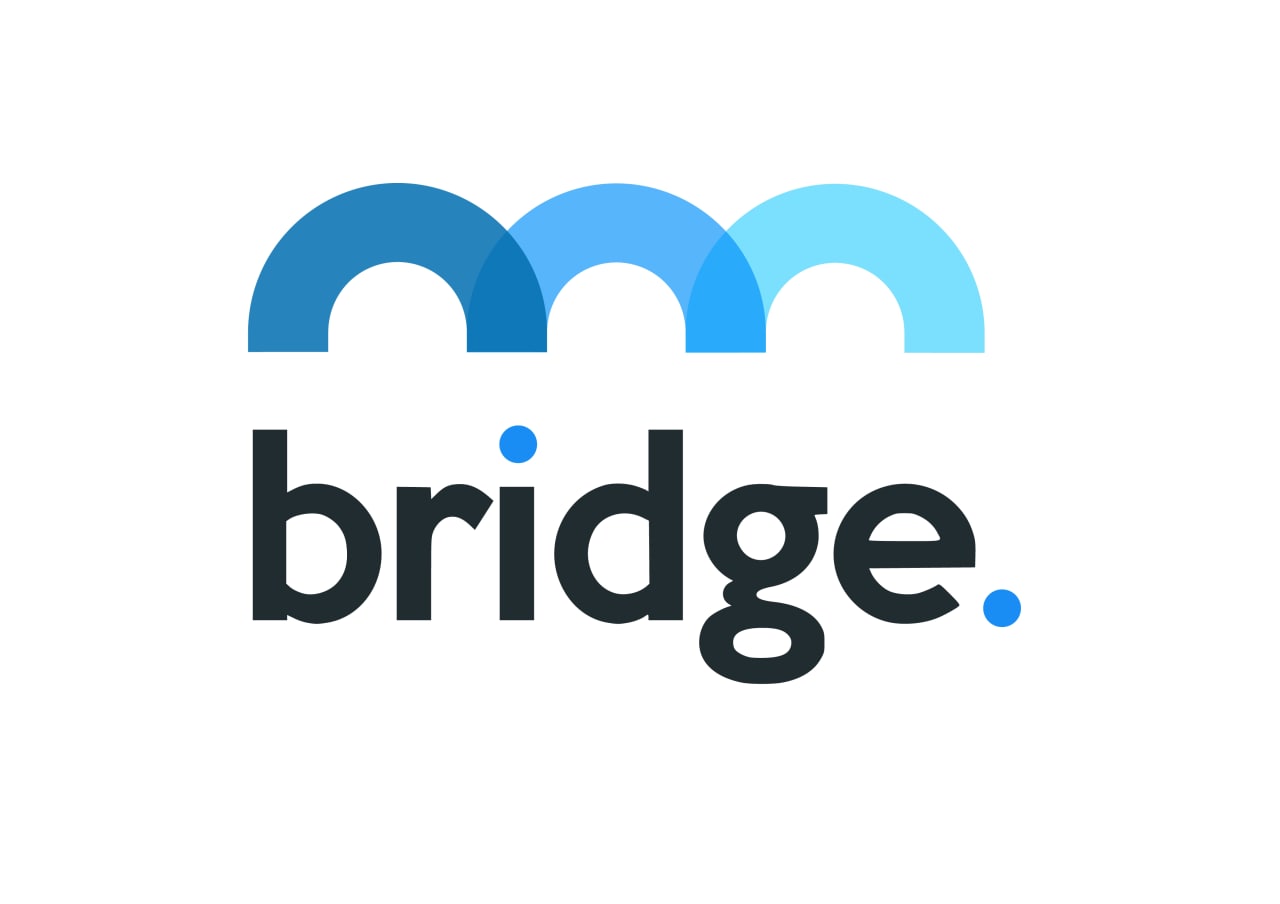
Bridge Mutual, a decentralized platform that allows users to insure stablecoins, has announced that its native BMI token will be launched on Polkastarter tomorrow, January 30. The Polkadot’s decentralized exchange will host an Initial DEX Offering (IDO) for Bridge Mutual.
“Even the most sophisticated digital asset investors are at risk of losing their funds through various malicious and negligent activities in the blockchain ecosystem. With Bridge Mutual, we believe it doesn’t have to be this way. Using Bridge, people can control the risk exposure of their digital asset investments, just as they do with real-world assets. The Bridge Mutual platform allows people to offer and purchase coverage in a decentralized p2p way. We’re excited kickstart the launch of the BMI ecosystem with a launch on Polkastarter and creating a better way of protecting digital assets for users all over the globe,” Bridge Mutual CEO Mike Miglio said in a statement.
Bridge Mutual allows users to buy and sell insurance for smart contracts, stablecoins and crypto exchanges, peer-to-peer. Users can purchase insurance via the Bridge Mutual app and then file a claim if their digital assets are lost after a hack. “When users lock stablecoins in Bridge Mutual’s coverage pools, those funds are reinvested into popular (and safe) yield generating platforms that return yields to coverage providers. When a claim is approved, stablecoins from the coverage pool goes…
-

 Blogs6 years ago
Blogs6 years agoBitcoin Cash (BCH) and Ripple (XRP) Headed to Expansion with Revolut
-

 Blogs6 years ago
Blogs6 years agoAnother Bank Joins Ripple! The first ever bank in Oman to be a part of RippleNet
-

 Blogs6 years ago
Blogs6 years agoStandard Chartered Plans on Extending the Use of Ripple (XRP) Network
-

 Blogs6 years ago
Blogs6 years agoElectroneum (ETN) New Mining App Set For Mass Adoption
-

 Don't Miss6 years ago
Don't Miss6 years agoRipple’s five new partnerships are mouthwatering
-
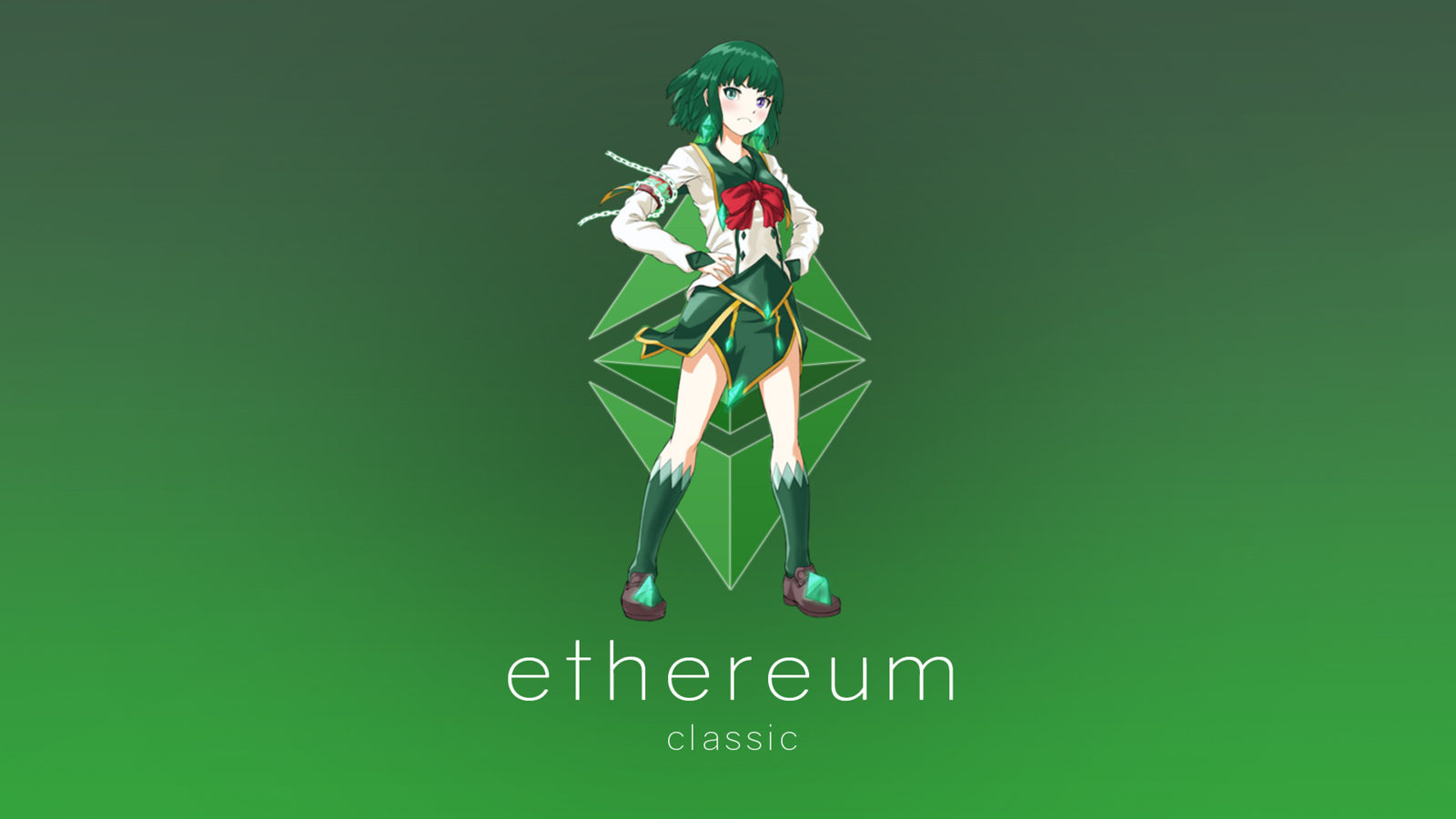
 Blogs6 years ago
Blogs6 years agoEthereum Classic (ETC) Is Aiming To Align With Ethereum (ETH)
-

 Blogs6 years ago
Blogs6 years agoCryptocurrency is paving new avenues for content creators to explore
-

 Blogs6 years ago
Blogs6 years agoLitecoin (LTC) Becomes Compatible with Blocknet while Getting Listed on Gemini Exchange

